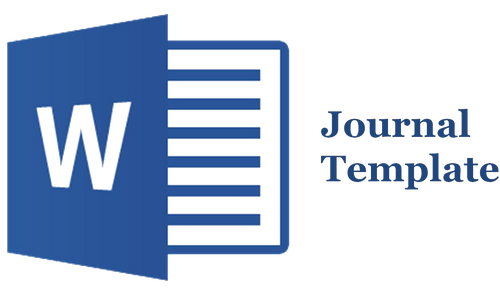KETERBUKAAN INFORMASI PEMERINTAH KOTA PROBOLINGGO MELALUI PENGGUNAAN AKUN INSTAGRAM @probolinggoimpressive
DOI:
https://doi.org/10.69875/djosse.v1i3.121Keywords:
Keterbukaan informasi, media sosial, pelayananAbstract
Public information disclosure continues to develop not only through official government websites, but the central and regional governments optimize the use of popular and trending social media. As in Probolinggo City, the Probolinggo City Government also uses social media in disseminating information and received an award as an Informative Public Agency at the Regency / City Level in East Java in the KI Award 2023. This is interesting to research. To find out the application of information disclosure in Probolinggo City through social media. This type of research applies a qualitative approach. Based on the results of research and analysis, the conclusion is that the quality of information services through Instagram @probolinggoimpressive social media owned by the Probolinggo City Government is included in the accurate, timely and relevant assessment. As well as information transparency through the @probolinggoimpressive account that can be received by the public well according to indicators of information speed; novelty (updating); interactivity; personalization; load capacity can be enlarged; connected with other sources (hyperlinks).
References
Alvioni, A. T., Darto, & Bonti. (2022). Keterbukaan Informasi Publik Di Dinas Komunikasi Informatika Dan Statistik Kabupaten Bandung Barat. Jane: Jurnal Administrasi Negara, 14(1), 152–160.
Baharuddin, T. (2020). Keterbukaan Informasi Publik: Studi Pada Keberhasilan Pemerintah Daerah Kabupaten Luwu Utara 2019. Journal of Governance and Local Politics, 2(2), 151–163. https://doi.org/10.47650/jglp.v2i2.133
Berliner, D., Bagozzi, B. E., Palmer-Rubin, B., & Erlich, A. (2021). The Political Logic of Government Disclosure: Evidence from Information Requests in Mexico. The Journal of Politics, 83(1).
Hastrida, A. (2021). Proses Pengelolaan Media Sosial Pemerintah : Manfaat Dan Risiko. Jurnal Penelitian Komunikasi Dan Opini Publik, 25(2), 149–165. https://doi.org/https://dx.doi.org/10.33299/jpkop.25.2.3920
Khosroshahi, H., Azad, N., Jabbarzadeh, A., & Verma, M. (2021). Investigating the level and quality of the information in the environmental disclosure report of a corporation considering government intervention. International Journal of Production Economics, 235.
Kristiyanto, E. N. (2016). Urgensi Keterbukaan Informasi dalam Penyelenggaraan Pelayanan Publik. Jurnal Penelitian Hukum De Jure, 16(2), 231–244. https://ejournal.balitbangham.go.id/index.php/dejure/article/view/59/11
Lisdawati, Y. (2022). Penggunaan Media Sosial Dalam Penyebarluasan Informasi Program Pemerintah Di Dinas Komunikasi Informatika Statistik Dan Persandian Kabupaten Rokan Hilir Provinsi Riau. Jurnal Teknologi Dan Komunikasi Pemerintahan, 4(2), 1–23. https://ejournal.ipdn.ac.id/JTKP/article/view/2876
Mahadiansar, M., Ikhsan, K., Sentanu, I. G. E. P. S., & Aspariyana, A. (2020). Paradigma Pengembangan Model Pembangunan Nasional Di Indonesia. Jurnal Ilmu Administrasi: Media Pengembangan Ilmu Dan Praktek Administrasi, 17(1).
Moleong, L. J. (2018). Metodologi Penelitian Kualitatif. PT. Remaja Rosdakarya.
Nawangsih, V. S. A., & Fitria, N. J. L. (2023). EPIC Model Dalam Penyebaran Informasi Melalui Media Sosial Untuk Peningkatan Citra Pemerintah Kota Probolinggo. Journal of Governance Innovation, 5(1), 24–41.
Novianti, E., Nugraha, A. R., Komalasari, L., & Komariah, K. (2020). Pemanfaatan Media Sosial Dalam Penyebaran Informasi Program Pemerintah (Studi Kasus Sekretariat Daerah Kabupaten Pangandaran). Al-Munir: Jurnal Komunikasi Dan Penyiaran Islam Volume, 11(1), 48–59.
Rachmiatie, A. (2016). Membangun Kecerdasan Informasi Dalam Peneguhan Karakter Bangsa. Jurnal Komunikasi Ikatan Sarjana Komunikasi Indonesia, 1(2). https://doi.org/https://doi.org/10.25008/jkiski.v1i2.57
Rahmanto, A. N. (2022). Media Sosial dan Persepsi Publik tentang Good Governance pada Pemerintah Daerah di Solo Raya. Jurnal Ilmu Komunikasi, 20(1), 88. https://doi.org/10.31315/jik.v20i1.6433
Ricky, & Rahimallah, M. T. A. (2022). Keterbukaan Informasi Publik Di Indonesia (Perspektif Akuntabilitas, Transparansi Dan Partisipasi). Jurnal Ilmiah Wahana Bhakti Praja, 12(2), 62–75. https://doi.org/10.33701/jiwbp.v12i2.2911
Setiaman, A., Sugiana, D., & Mahameruaji, J. N. (2013). Implementasi Kebijakan Keterbukaan Informasi Publik. Jurnal Kajian Komunikasi, 1(2), 196–205. https://doi.org/10.24198/jkk.vol1n2.9
Simarmata, M. H. (2017). Peranan e-Government dan Media Sosial untuk Mewujudkan Budaya Transparansi dan Pemberantasan Korupsi. Jurnal Integritas, 3(2), 203–229. https://doi.org/https://doi.org/10.32697/integritas.v3i2.108
Sukmawati, & Alwi. (2019). Keterbukaan Informasi Publik Melalui Media Online Dalam Mewujudkan Transparansi Pengadaan Barang Dan Jasa Di Kota Parepare. KAREBA: Jurnal Ilmu Komunikasi, 8(1), 96–103. https://journal.unhas.ac.id/index.php/kareba/article/view/8893
Syeh, F. F., Amir, A. S., & Arya, N. (2022). Implementasi Keterbukaan Informasi Publik Pada Situs Web Pemerintah Daerah Se-Sulawesi Selatan. Perspektif Komunikasi: Jurnal Ilmu Komunikasi Politik Dan Komunikasi Bisnis, 6(2), 209–218. https://jurnal.umj.ac.id/index.php/perspektif/article/view/13988
Yovinus. (2018). Peran Komunikasi Publik Media Sosial dalam Implementasi Kebijakan Keterbukaan Informasi Publik Di Kota Bandung. Jurnal Academia Praja, 1(1), 185–211.
Zhang, L., Mol, A. P., & He, G. (2016). Transparency and information disclosure in China’s environmental governance. Current Opinion in Environmental Sustainability, 18(2). https://doi.org/https://doi.org/10.1016/j.cosust.2015.03.009
Downloads
Published
How to Cite
Issue
Section
License
Copyright (c) 2024 Mastina Maksin, Nurul Jannah Lailatul Fitria

This work is licensed under a Creative Commons Attribution-ShareAlike 4.0 International License.





